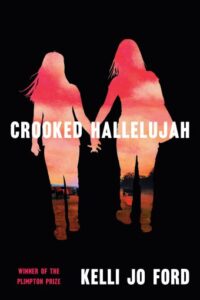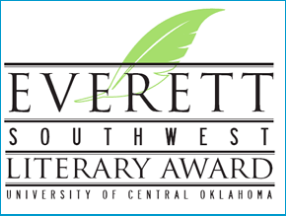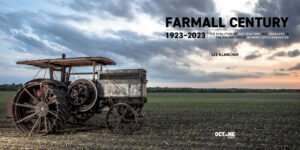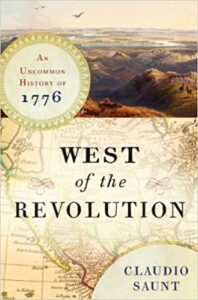Lee Klancher: The Farmall Century 1923-2023
April 24, 2024 by David
Filed under Art and Photography, Non-Fiction, WritersCast
 The Farmall Century 1923-2023: The Evolution of Red Tractors and Crawlers in the Golden Age of International Harvester – Lee Klancher – Octane Press – Hardcover – 9781642341393 – 384 pages (11.8 x 10.5) – $59.95 – October 26, 2023
The Farmall Century 1923-2023: The Evolution of Red Tractors and Crawlers in the Golden Age of International Harvester – Lee Klancher – Octane Press – Hardcover – 9781642341393 – 384 pages (11.8 x 10.5) – $59.95 – October 26, 2023
This fantastic coffee table book is a massive, well-researched, detailed, extensively illustrated, and very readable history not only of the International Harvester Farmall tractor, but of the people and company that built, marketed and sold it all over the world. Even if you have no interest whatsoever in tractors as motorized, wheeled devices, this story is compelling. Farming was once what the majority of Americans did for a living, and while the numbers of farmers has declined steadily during the last hundred years, the industries that emerged in the industrial age to convert American agriculture from horse to engine driven agriculture were a crucial part of the story of modern America and the world we fed (and still, to some measure still feed).
As a history of an important part of our agro-industrial economy, The Farmall Century is indispensable. If you are interested in American history, this book will captivate your imagination and make you think about the incredible ambition, ingenuity, inventiveness, and commitment of so many individuals who built these industrial companies, and you will also find reasons to think about the downsides of our industrialized agriculture too.
Lee Klancher probably knows more about tractors and farmers than anyone you will ever come across. He not only writes and takes photographs for his books, he is also the founder and operator of the leading tractor related book publisher, Octane Press, in Austin, Texas. I interviewed him about Octane for the Publishing Talks series back in 2016 because I think the kind of focused niche publishing he does is so interesting.
In any case, I love anything with wheels, and even though I did not grow up on a farm and have never driven a tractor, I had a great time reading Lee’s beautifully written and produced Farmall book. Talking to Lee about it was an additional pleasure. I hope you enjoy our conversation as much as I did. Here’s a link to the book, and here’s a link to Octane Press, which is a fun site to visit also. There are plenty of tractor books there, but much more too, a great many treats, especially if you like wheeled vehicles.
Podcast: Play in new window | Download
Unworthy Republic: The Dispossession of Native Americans and the Road to Indian Territory by Claudio Saunt
March 18, 2021 by David
Filed under Non-Fiction, WritersCast
 Unworthy Republic: The Dispossession of Native Americans and the Road to Indian Territory – Claudio Saunt – 97800393541564 – paperback – W.W. Norton – 416 pages – $26.95 – February 23, 2021 – ebook versions available at lower prices
Unworthy Republic: The Dispossession of Native Americans and the Road to Indian Territory – Claudio Saunt – 97800393541564 – paperback – W.W. Norton – 416 pages – $26.95 – February 23, 2021 – ebook versions available at lower prices
This is a book that should be required reading for all Americans. Even those of us who think we know the story of the Trail of Tears and other important efforts by our white antecedents to eliminate Indians from the eastern United States will learn from the incredibly well researched and carefully documented story told by a brilliant historian.
Unworthy Republic documents the reprehensible story of the “Indian Removal” of the 1830s, which resulted in the forced migration of Native Americans whose ancestral territories include what is now North Carolina, Georgia and Florida, and to a lesser extent Ohio and western New York state.
On May 28, 1830, the United States Congress authorized the forced expulsion of indigenous people then living in the east to a new Indian territory west of the Mississippi, under the false notion that they would be free to live their lives away from white settlers and farmers then pouring into their unceded lands.
The US government then set out to forcibly move at least 80,000 Native Americans from their homelands west, usually on foot, and always at their own expense. It was a disastrous undertaking that was shot through with fraud and a racist disregard for the health and well being of the Indians by the white citizenry and politicians who wanted to steal their land, as well as by the military that was used to administer and enforce the effort.
As Saunt exhaustively documents, fraud, intimidation, murder and theft were the common tools of the day. Rich planters and politicians created a fictional hypocritical story line to justify their greed and theft. In the course of the removals, many thousands of Native Americans were killed, many more suffered horribly, and almost all lost their lands and what few possessions they had at the time. In the end, the “removal” can be seen for what it was, an unofficial US policy of extermination constructed to benefit southern slave owning planters with the active participation and support of greedy financial speculators, mostly from New York.
In this book, Saunt makes three related core arguments: “The state-administered mass expulsion of indigenous people was unprecedented, it was a turning point for indigenous peoples and for the United States, and it was far from inevitable.”
It is impossible to read this book and to not be angered, even now that we are almost two hundred years removed from this decade of horror. The actual events that underpin the history ofd the United States must be reconciled with the manufactured myths that we use to tell our own stories to ourselves. It is not a matter only of white guilt (though there is nothing wrong, in my opinion, with guilt, if it can be harnessed to positive ends) nor is an intellectual hand wringing a useful response to learning the hard lessons of our history. What we can take from these stories is an understanding of how to be better at living our ideals, and transforming what we have been to something different, that gives voice to the actual people whose land we live on today. The acknowledgment of indigenous people can not be simply gestural. A book like Unworthy Republic must draw us closer to action – as Buddhists often point out – no one is free until all are free. The American correlation is that no one can live comfortably with the land until all of us do. Our history is with us still.
Finalist for the 2020 National Book Award for Nonfiction
Shortlisted for the 2020 Cundill History Prize
Named a Top Ten Best Book of 2020 by the Washington Post and Publishers Weekly and a New York Times Critics’ Top Book of 2020
Claudio Saunt is the Richard B. Russell Professor in American History at the University of Georgia. He is the author of award-winning books, including A New Order of Things; Black, White, and Indian; and West of the Revolution. He lives in Athens, Georgia. It was an honor for me to have the opportunity to speak with Claudio about this important and powerful book.
Author website here.
Buy the book here.
Podcast: Play in new window | Download
Crooked Hallelujah: Kelli Jo Ford
July 20, 2020 by David
Filed under Fiction, WritersCast
 Crooked Hallelujah – Kelli Jo Ford – 978-0-8021-4912-1 – Grove Press – Hardcover – 304 pages – July 14, 2020 – $26.00 – ebook versions available at lower prices.
Crooked Hallelujah – Kelli Jo Ford – 978-0-8021-4912-1 – Grove Press – Hardcover – 304 pages – July 14, 2020 – $26.00 – ebook versions available at lower prices.
Kelli Jo Ford’s novel is a deeply rewarding read. Comparisons to the work of Louise Erdrich are inevitable and unavoidable (and Kelli Jo mentioned Louise in our conversation as one of her most important influences.) This is a novel of relationships and family told through the voices of four generations of Cherokee women and to a lesser extent, the men who come in and out of their lives. The narrative weaves together strands of familial cloth into what emerges as a beautiful and compelling pattern that we experience fully as the story is told.
At the outset of the book, we are in 1974 in the Cherokee Nation, eastern Oklahoma, where fifteen-year-old Justine is growing up in a family dominated by women – her mother, Lula, and her mother’s mother, Granny. We follow Justine, and her daughter, Reney, through a series of challenges in Oklahoma and Texas and back to Oklahoma, where family and roots call out to her.
Kelli Jo Ford is a fine writer, and manages her characters and their stories well. Her intergenerational story is complicated, and the multiple narrative voices take some concentration to follow, but her writing is warm and deft, and we are rewarded in the end by the beauty and depth of her characters and their lives. This family of strong Cherokee women continually face challenges with strength and wisdom. They make the necessary sacrifices for the people in their lives and go on living despite all the difficulties they face. They don’t always get along – these women are real people, not caricatures. They do not always succeed in understanding each other or overcoming the difficulties and challenges they face. There are conflicts over religion and individuality. But these women are bound by blood, heart, and a deeply felt love that carries them forward despite all. I came away from this book with an appreciation for the strength and perceptiveness of Cherokee women.
Kelli Jo Ford is a citizen of the Cherokee Nation of Oklahoma. She is the recipient of numerous awards, a National Artist Fellowship by the Native Arts & Cultures Foundation, and a Dobie Paisano Fellowship. Her fiction has appeared in the Paris Review, Virginia Quarterly Review, Missouri Review, and the anthology Forty Stories: New Writing published by Harper in 2012. She now lives in Virginia with her husband, poet Scott Weaver.
My conversation with Kelli Jo was her first interview about Crooked Hallelujah. She is a new writer many of us will want to follow in the years to come.
Author website here.
Support local business. Buy the book from R.J. Julia Booksellers.

Podcast: Play in new window | Download




